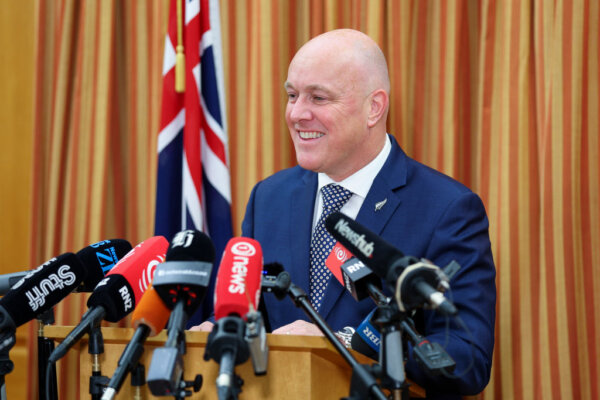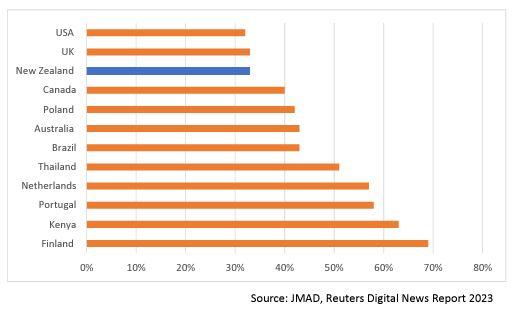Survey Reveals New Zealanders are Choosing to Disconnect from News Outlets
Trust in news has dropped to an all-time low in New Zealand, as the number of people actively avoiding the news rises.
More New Zealanders (NZers) than ever are turning their backs on the news, and an increasing number don’t trust it.
Those Who Say They Trust the News
Meanwhile, the proportion of people avoiding the news “to some extent” grew from 69 percent in 2023, to 75 percent in 2024.
Trust for Television Dropping
But while trust in the news in New Zealand declined by 20 percentage points between 2020 and 2024; so did trust in search engines (-4 percentage points) and social media (-3 percentage points) across the same period.
In 2024, The Otago Daily Times (which services the bottom half of the South Island) was perceived as the most trusted brand, followed by RNZ (government-funded public radio network), and NBR (online business site but originally a print newspaper) equally in second place.
However, the survey also showed that New Zealanders are more interested in news than many of their overseas counterparts.
Of those surveyed, 72 percent are either extremely interested (33 percent), interested (3 percent), or somewhat interested (22 percent) in the news.
Concerns About Bias
As to the reasons for the mistrust, survey participants were asked whether they believed that the news media was independent of undue political or government influence most of the time. In 2024, approximately 27 percent agreed, whereas in 2023 the figure was 32 percent.
The survey also asked to what extent locals were concerned about poor journalism, defined as factual mistakes, dumbed-down stories, and misleading headlines/clickbait.
Approximately 92 percent said they were concerned, slightly down from 94 percent in 2023.
Additionally, 96 percent were concerned about “stories where facts are spun or twisted to push a particular agenda,” and 89 percent felt some “stories [were] completely made up for political or commercial reasons that look like news stories but turn out to be advertisements.”
On the other side of the debate, people who trusted the news were asked why.
Approximately 65 percent of that group agreed that journalists “provide me with quality information about important issues” and 54 percent said that they depend on journalists not to misinform them via “fair and honest reporting.”
Almost half of them (46 percent) trust news because “journalists do their best to tell both sides of stories.”
New Zealanders are by no means atypical, however.
The Reuters Institute’s Digital News Report 2023 found that on average, trust in news fell from 42 percent in 2022, to 40 percent in 2023 across the 46 markets in its study. Finland has remained the country with the highest level of trust in news (69 percent), whereas Greece has the lowest level (19 percent).
Americans are in the same bracket as New Zealanders, with just 32 percent trusting the mass media to report news in full and accurately—a figure pollsters Gallup say is the “lowest historical reading, previously recorded in 2016.”







